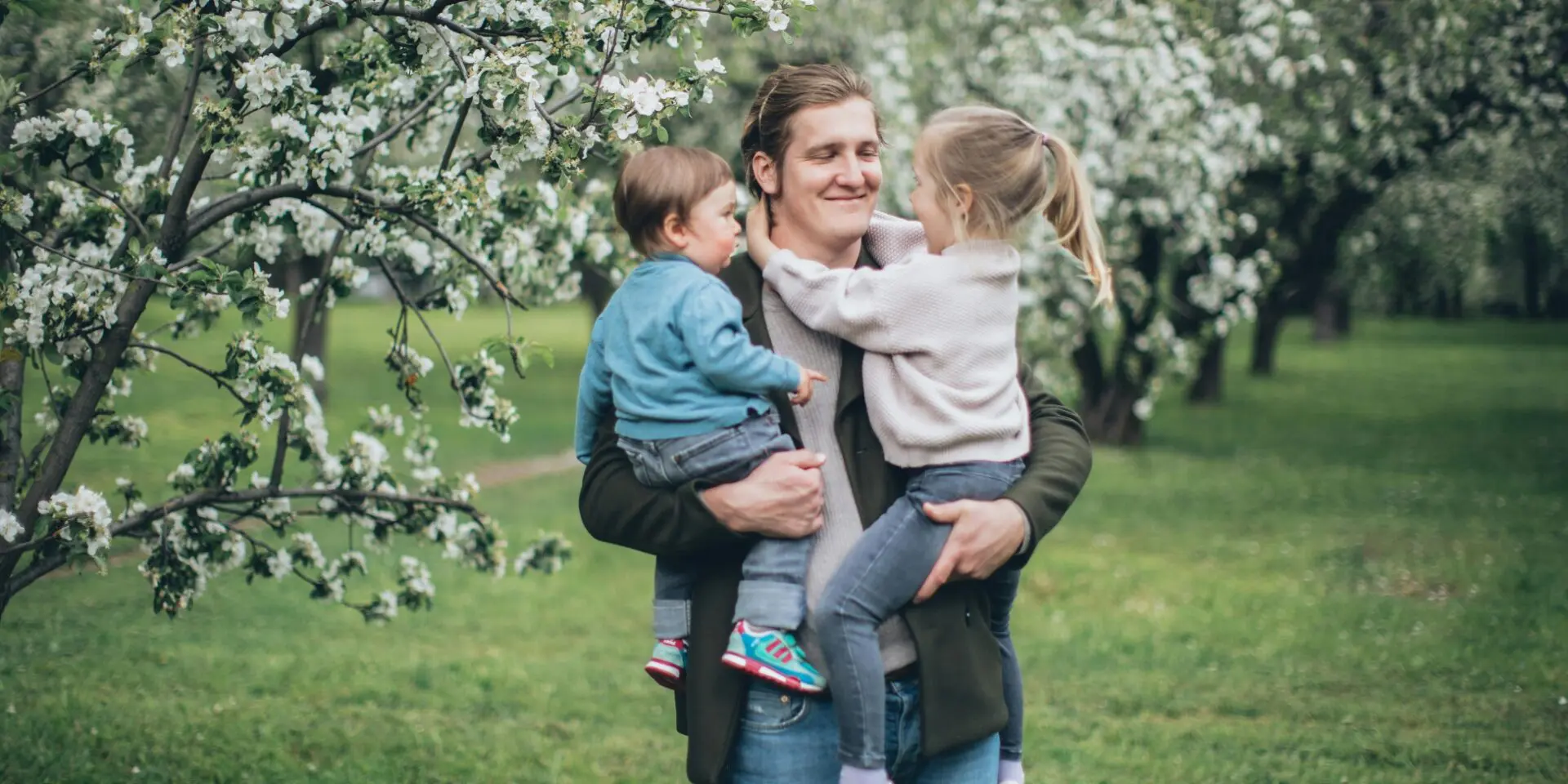Grief, death, and dying are all things no one wants to talk about, but we do.
– Grace, Youth Trustee, 23 (bereaved at age 8)
Bringing up the topic of death with children and young people is really important. Lots of adults find this uncomfortable when talking to other adults, and it’s completely normal to feel this way when talking to children and young people as well. It can sometimes feel such a big responsibility to talk about a death to a child or young person, and it’s normal to question where to start the conversation, what words to use, how will the child/young person react, must I do this, can I do this?
You know that you can do this. Talking about a death isn’t just for health, education or bereavement specialists, it’s a conversation you can have with the children you’re supporting.
It’s normal for adults to worry about saying the wrong thing, fearing the conversation will make the child feel worse after, or trying to avoid having the conversation altogether. It can feel like it’s testing all you’ve got, to have such an important conversation with the child. It can feel even more difficult for you if you are also grieving, in shock yourself and struggling to think clearly.
If the child or young person you are supporting has special educational needs or disabilities, they may need some extra support in understanding what has happened. It is important to remember that no matter how severe their disability, each child will still be affected by grief and can be supported in a way that is appropriate to them. We have more information about this in our publication We All Grieve.
Whilst there is no ‘one size fits all’, and every individual grieves differently, Winston’s Wish can support you in talking, and listening, to the child about the death and their grief. Use the on-demand services available on weekdays from 8am to 8pm.

Call
Call us for free on 08088 020 021 between 8am-8pm, weekdays.

Email us on ask@winstonswish.org or fill out our contact form and we’ll reply within two working days.

Live Chat
Chat online between 8am-8pm, weekdays by clicking the blue ‘Chat with us’ button at the bottom right of your screen.

Text
For out of hours mental health support, text WW to 85258 to speak with someone from our trusted partner, Shout. For urgent support in a crisis, please call 999.
Talking to a child about death
If the child you’re supporting has experienced a death for the first time, they may not understand what death means, and you may need to explain this to them, perhaps over a period of time. Winston’s Wish created a resource for explaining death through insects.
Children often struggle to understand the permanency of death, and they may think the person will come back to life again. This is normal, and it’s important to explain clearly to them that this cannot happen. The Winston’s Wish bereavement support team say that is better to be open, honest, and direct. Read more here.
Most caring adults want to protect the child from distress and pain, and many choose to use softening language when explaining a death to a child, such as “they passed away”, “they’ve gone to sleep” or “we lost… ” Phrasing things like this may feel like you are shielding the child from difficult and painful feelings and emotions, and the reality of what has happened.
If you can, use words like ‘died’ and ‘dead’ rather than ‘passed away’ or ‘lost’. Using less direct language often leads to confusion, especially in younger children who may wonder if they can go and find a person who is now ‘lost’ or wonder if they will die when they go to sleep, not understanding that dying is different from usual sleep, even if someone died whilst they were asleep.
Telling a child about death and how it happened
If you don’t tell the child about a death, they are likely to feel confused and anxious about what has happened. You can help support the child by talking with them about a death.
Don’t feel under pressure to talk about everything in detail, in this one conversation. Winston’s Wish recommends giving age-appropriate information, often one piece of information at a time. You can build up the information that you share with the child over time, as and when they are ready for it. Think of it like giving the child the next piece of the jigsaw puzzle. When they ask for the next piece, it lets you know that they are ready for it, so you can take the lead from the child and go at their pace.
Where possible, Winston’s Wish bereavement support workers suggest having this conversation in person and being physically together in the same place at the same time. Avoid telling the child about a death over the phone or text message if possible.
You can start the conversation by saying that you have some sad news to tell them. You may want to let them know that after you have explained this, that you can both have a hug, or they can do an activity of their choice. Emphasise that you are there for them if they want to do something together or if they want time on their own, that’s ok too. If it’s manageable, it’s important for you to maintain existing routines around mealtimes, bedtimes etc., because this sense of predictability and familiarity can be comforting and reassuring to a child or young person and help them to feel safe.
Often it can be enough to just say that someone has died. Winston’s Wish recommends using their name/relationship to the child “… has died”.
Here is a video which explains death, dying and grief for children around primary school age, but may also be useful for people of different ages.
Managing reactions from more than one child
If you are supporting more than one child, you may decide to tell them together or one at a time. Be prepared that they may have different understandings and grief responses, some may cry, some may not; some may act as if nothing has happened, whereas you may see huge changes in emotional, social and behavioural presentation in others; some may want to be close to you, others may prefer time on their own or with their friends. This is normal and ok. Try not to judge and compare any differences between siblings in what grief emotions and feelings are shown and how, but view them each individually, and accept that grief is unique, and this is what the death of this person means to this individual child now, and how they are coping with this.
Remember that there are lots of different ways that individual children and young people may respond after news of a death. The child may respond differently to how you have responded, or differently to a sibling.
Don’t be afraid of any silences or pauses, as the child tries to make sense of what is being said to them. Shock is a normal response to being told news of a death. Give the child time to start to process the enormity of what has just been said to them, don’t rush this or overwhelm them with more information.
Sometimes people of all ages will struggle to accept news about a death and may think it is a joke or not really true. They may need more time to process what has been said to them, and to re-hear this a few times for it to sink in.
Some children, especially younger ones, may want to go off and play immediately after you tell them that someone has died, and not appear to have appreciated the seriousness of what has been shared with them. This may be because they don’t really understand and/or because young children often ‘puddle jump’ in their grief. This means that when children start to feel difficult or uncomfortable feelings and emotions, that they can quickly try to distract themselves with other things. If the child reacts like this, it’s quite normal and it doesn’t mean that you have done anything wrong.
Read more about children and their grief.
Answering questions the child(ren) may have
You can then be led by any questions the child or young person asks. Remember that if a child or young person asks a question it usually means that they are ready for the answer. Remember to explain using child appropriate language, in a way that a child can understand.
If you are unsure how to answer a question from the child, let them know that you will have a think about how best to explain this for them, and then be sure to come back to them.
You are welcome to use the on-demand services to speak to one of the Winston’s Wish bereavement support workers, so they can help you to think about how to tell the child about a death of someone in their life, in a way that they can understand. They are here to help you practise this conversation if you want to and to feel more confident in being able to do this. They can also offer you support after having had this conversation, by helping you to think about ways to respond to any questions that the child has, and what to do next to help support the child as they grieve.
Grief is the love you have for the person who passed away, living on.
– Conor, Youth Ambassador, 24 (bereaved at age 17)

Remember the worst has already happened, by being willing to be available to the child and to talk with them about what has happened, you are supporting them and showing them that you care about them. You are also letting them know that they don’t have to try to make sense of this all on their own, that you can talk about this together, if they want to, from now on.
Don’t worry if you cry. If this happens, let the child know that people cry for all sorts of different reasons, and sometimes people cry because they are feeling sad and miss the person who has died. Let the child know that this is what you are feeling now “I’m crying because I’m really missing… and sad that they died.”
There are story books that you can read with the child to help them to understand more about what has happened and how death affects us; to begin to think about what the death of this person means to them now, how they feel, what questions they have, and ways that they can be supported in their grief.
Take a look at our suggested reading list.

You might also like

Activities can be a useful way to help grieving children and young people to explore and express their feelings and emotions and to help them maintain memories of the person who has died. Take a look at some of our activities that you can try yourself at home.

How to support a teenager who is grieving
When a teenager experiences the death of someone close to them, their emotions and ability to cope can feel so much more difficult and intensified for the young person and those supporting them. We have some advice on how to talk to a teenager about a death.


